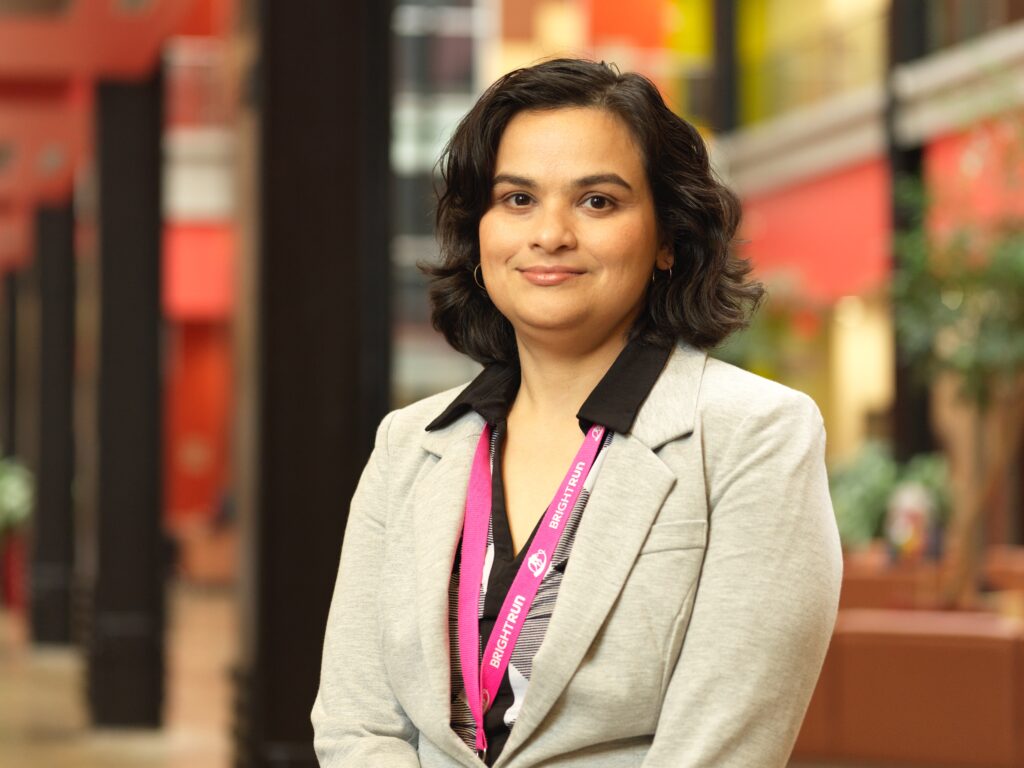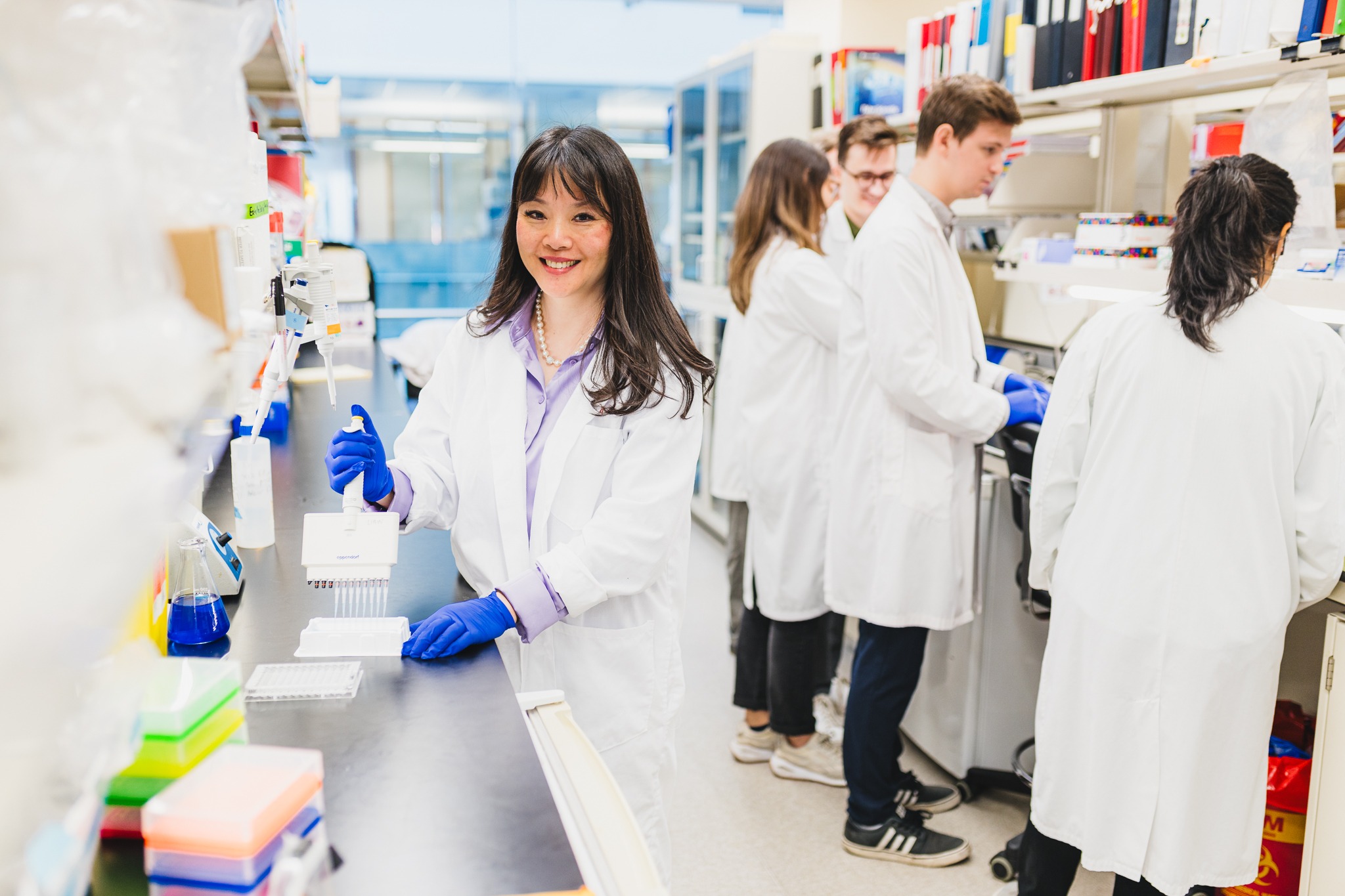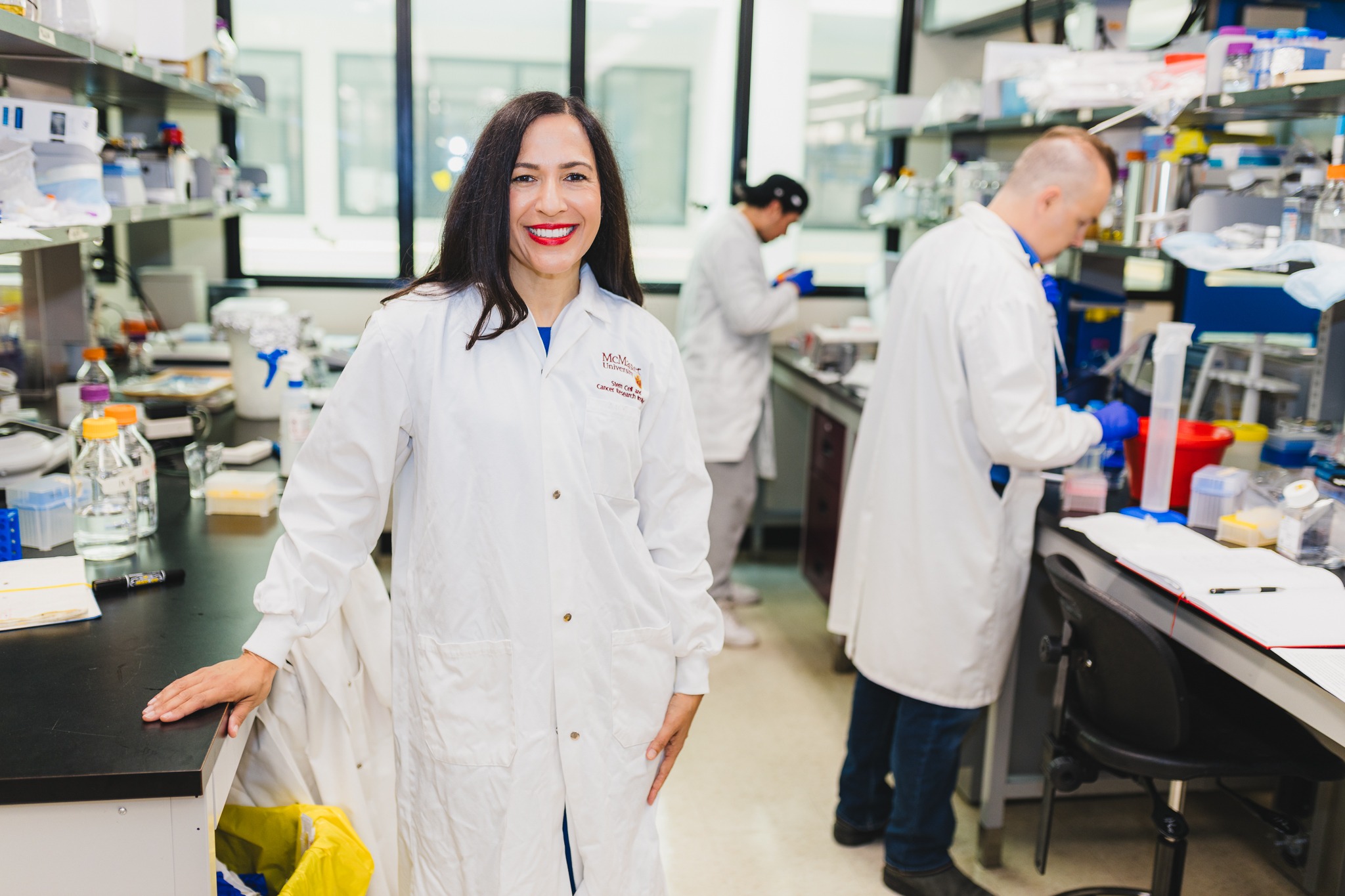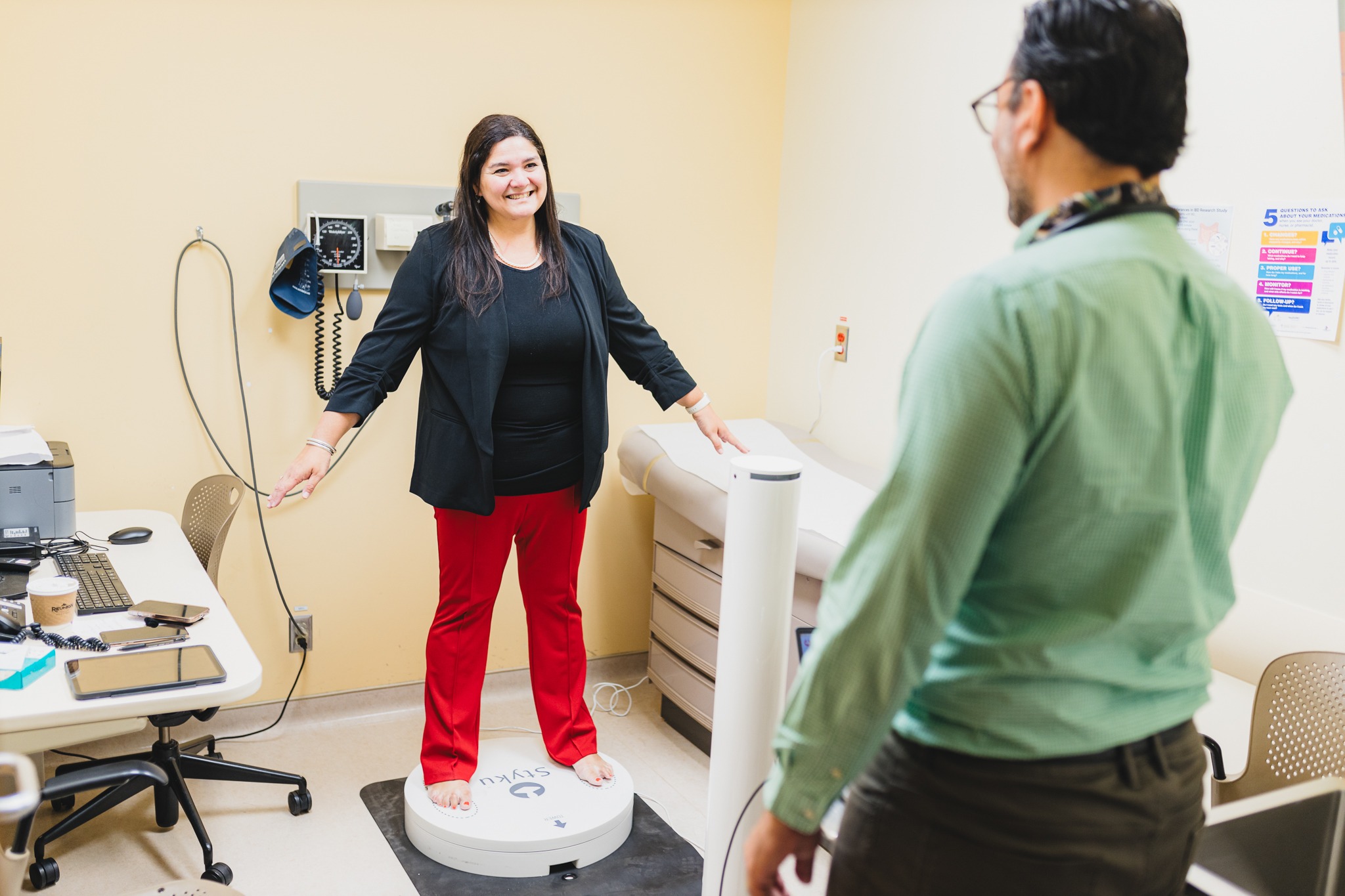
AI-driven research means BRIGHTer future for breast cancer patients
October is Research Awareness Month at Hamilton Health Sciences (HHS) and Breast Cancer Awareness Month across the country. With this in mind, we can’t think of a better time to shine the ‘research spotlight’ on computer engineer and data scientist Dr. Ashirbani Saha, BRIGHT Run’s inaugural Breast Cancer Learning Health System Chair.
BRIGHT Run is a fundraising event held each September in support of breast cancer research at HHS Juravinski Cancer Centre (JCC), McMaster University and the Escarpment Cancer Research Institute.
To date, BRIGHT Run has raised $5.5 million in support of local breast cancer research, with funds supporting research projects including this permanent chair position established by BRIGHT Run in 2021 in partnership with McMaster.
Inaugural BRIGHT Run chair
Saha has a PhD in electrical and computer engineering and recently became a senior member of the Institute of Electrical and Electronics Engineers (IEEE).

Dr. Ashirbani Saha speaking at an annual BRIGHT Run event.
An expert in the use of AI research, her role as chair focusses on advanced analytics in breast cancer to help health-care providers in their work improving patient care and outcomes.
“Positive AI breakthroughs are happening faster than ever.”
Saha uses a wealth of patient and health-care provider data available through HHS and McMaster University, such as digital photos, imaging from scans, test reports, clinical notes and patient demographics, and applies specifically designed AI-based software to organize and analyze this data.
“The amount of data generated from breast cancer patients at JCC is rich in quantity, content and diversity,” says Saha. “For example, a patient treated at JCC provides invaluable information based on their diagnosis and care. All this has the potential to generate and answer research-related questions, which, in turn, helps shape the future of breast cancer treatment.”
Looking at the whole picture through AI
Saha’s research allows her to see a broader spectrum of data and literature for breast cancer patients, from prevention and cancer screening tests like mammograms to diagnosis, treatment, recovery and survivorship or end of life.
“This provides a lot of insights on what can be done to improve people’s quality of life and survivorship,” she says. “It’s like we’re looking at an elephant, rather than just its ear or leg. Thanks to information made available through the advances of AI and dedicated research groups, we’re looking through a much larger lens rather than at segments of data as this information becomes available.”
Diverse expertise drives advancements
Highlights for Saha include working with experts from a variety of backgrounds, with diverse knowledge and experience.
For example, important sources of data Saha is exploring for information and insights include the learning health system for breast cancer, established by a multi-disciplinary team under the leadership of Dr. Jeremy Petch and Dr. Mark Levine. Petch has a PhD in philosophy specializing in health policy ethics and is the founding director of HHS CentRE for dAta science and digiTal hEalth (CREATE). Dr. Levine is a retired medical oncologist, renowned breast cancer researcher and a founding member of BRIGHT Run.
A scholarly report on building this data and analytics platform was recently published in JCO Clinical Cancer Informatics, an American Society of Clinical Oncology journal.
Saha also worked with Levi Burns, a McMaster University MD candidate and Dr. Ameya Kulkarni, an HHS radiologist, on reviewing AI applications using radiology reports for breast cancer.
Their work, recently published in the research journal Frontiers in Oncology, involved performing a scoping review of AI applications performed using breast cancer radiology reports. A scoping review is a preliminary assessment of the potential size and scope of available research literature in a specific area of study.
Radiological images involved in this review included mammograms, CT scans, PET scans, MRIs and digital breast tomosynthesis.
“AI, as we know, isn’t limited to any particular sector right now,” says Saha. “Instead, it’s evolving as a general purpose technology. As an engineer, I always look for applications and ways to improve them, so diverse expertise can help make application software even better.”
Understanding the potential
Saha encourages members of the health-care community, and the public, to be open to the huge potential AI presents for the future, including in health care.
“Positive AI breakthroughs are happening faster than ever,” she says. “Being in the right position, with the right data set and the right computing resources are important, which I’m getting from my network including my department and the HHS CREATE group.”



